Welcome to our free classical music site

Do you write about classical music? Are you a blogger? Want to team up with Classical Connect? Send us a message, let's talk!

Do you write about classical music? Are you a blogger? Want to team up with Classical Connect? Send us a message, let's talk!
This Week in Classical Music: January 23, 2023. Mozart. For the last couple of weeks, we’ve been involved with the Jewish composers from Austria-Hungary and Germany, their lives during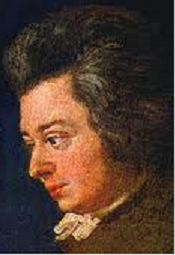 the flourishing of the Jewish culture at the end of the 19th and the first third of the 20th centuries, despite the underlying societal antisemitism, and how it all ended with the arrival of the Nazis. This week we’re in the same place geographically but centuries apart: Wolfgang Amadeus Mozart was born on January 27th of 1756 in Salzburg. We never thought of it till we engaged with the Austrian music after Mahler, but it seems that there were not that many great Austrian composers before Mozart, which seems rather strange. Of course, there was Haydn, Mozart’s direct predecessor, but otherwise, the music in Vienna was mostly Italian and German. We can’t think of any significant Austrian composers of the Baroque era other than Heinrich Ignaz Biber, and in the Classical 18th century there was the Bohemian-born Johann Stamitz and his sons, but they spent most of their lives in Mannheim, Germany. Carl Ditters von Dittersdorf had a funny-sounding name and was a friend of both Haydn and Mozart, but his music is mostly forgotten these days, though his oboe and double bass (yes, double bass!) concertos are not without interest. The Habsburgs, the Austrian family of the emperors of the Holy Roman Empire who ruled from Vienna for centuries, were especially partial to Italian music. There was not a single Austrian-born Kapellmeister till Mozart’s time: in 1787, when his genius was evident to everybody, Emperor Joseph II appointed Mozart Kammercompositeur (Chamber composer), while Antonio Salieri continued to be the more senior Kapellmeister.
the flourishing of the Jewish culture at the end of the 19th and the first third of the 20th centuries, despite the underlying societal antisemitism, and how it all ended with the arrival of the Nazis. This week we’re in the same place geographically but centuries apart: Wolfgang Amadeus Mozart was born on January 27th of 1756 in Salzburg. We never thought of it till we engaged with the Austrian music after Mahler, but it seems that there were not that many great Austrian composers before Mozart, which seems rather strange. Of course, there was Haydn, Mozart’s direct predecessor, but otherwise, the music in Vienna was mostly Italian and German. We can’t think of any significant Austrian composers of the Baroque era other than Heinrich Ignaz Biber, and in the Classical 18th century there was the Bohemian-born Johann Stamitz and his sons, but they spent most of their lives in Mannheim, Germany. Carl Ditters von Dittersdorf had a funny-sounding name and was a friend of both Haydn and Mozart, but his music is mostly forgotten these days, though his oboe and double bass (yes, double bass!) concertos are not without interest. The Habsburgs, the Austrian family of the emperors of the Holy Roman Empire who ruled from Vienna for centuries, were especially partial to Italian music. There was not a single Austrian-born Kapellmeister till Mozart’s time: in 1787, when his genius was evident to everybody, Emperor Joseph II appointed Mozart Kammercompositeur (Chamber composer), while Antonio Salieri continued to be the more senior Kapellmeister.
But back to Mozart’s music. We have hundreds of his pieces in our library, but not, until now, the Piano Concerto no. 22, and we’re glad to rectify this omission. The concerto was composed in 1785. This was a good period In Mozart’s life: he was happily married; he was friends with Haydn and played quartets with him (and Dittersdorf); he composed and performed several piano concertos and was paid handsomely for it; he moved to a more expensive apartment and bought a fine pianoforte for himself. It was also the time when he became a Freemason. The 3rd movement, Allegro, of the concerto was used by Milos Forman in his wonderful film Amadeus. There it was performed (brilliantly) by Ivan Moravec, with The Academy of St. Martin-in-the-Fields conducted by Neville Marriner. You can listen to it here in the performance by Murray Perahia and the English Chamber Orchestra. Mr. Perahia conducts from the keyboard. The cadenza at the end of the first movement is his, after Johann Hummel, and the one at the end of the 3rd movement is by Hummel.Permalink
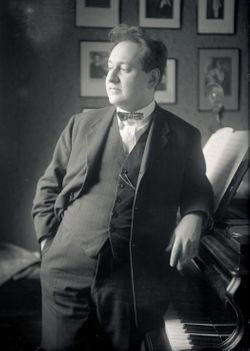 Finally, probably the most famous of the three, Erich Wolfgang Korngold. Even though he’s better known than many of his contemporaries, he also suffered greatly from Nazism. A child prodigy and the most famous composer of the pre-1933 Austro-German music world, he’s now mostly remembered for the music he wrote for Hollywood films, creating the so-called “Hollywood sound.” During the 20 years leading to the Nazi takeover, the German-speaking world was mad about operas and the young Korngold was at the top of the field. Operas by Zemlinksy, Schreker, Wellesz, Krenek’s Jonny spielt auf, and d’Albert’s Tiefland were staged hundreds of times a year all across Germany. Korngold’s Die tote Stadt, written when the composer was 23, was the most successful opera of its time. Following his earlier successes, Die tote Stadt was so anticipated that it had two simultaneous premieres, one in Hamburg and another in Cologne, where Otto Klemperer was the conductor. Here is Elisabeth Schwarzkopf singing the aria Glück das mir verb lie (Happiness that remained) from Die tote Stadt. Hamburg Rundfunkorchester is conducted by Wilhelm Schüchter. And here Renée Fleming is doing at least as good a job in the aria Ich ging zu ihm (I went to him) from Das Wunder der Heliane, from 1927, which Korngold considered his best composition. The BBC Philharmonic Orchestra is conducted by Gianandrea Noseda.Permalink
Finally, probably the most famous of the three, Erich Wolfgang Korngold. Even though he’s better known than many of his contemporaries, he also suffered greatly from Nazism. A child prodigy and the most famous composer of the pre-1933 Austro-German music world, he’s now mostly remembered for the music he wrote for Hollywood films, creating the so-called “Hollywood sound.” During the 20 years leading to the Nazi takeover, the German-speaking world was mad about operas and the young Korngold was at the top of the field. Operas by Zemlinksy, Schreker, Wellesz, Krenek’s Jonny spielt auf, and d’Albert’s Tiefland were staged hundreds of times a year all across Germany. Korngold’s Die tote Stadt, written when the composer was 23, was the most successful opera of its time. Following his earlier successes, Die tote Stadt was so anticipated that it had two simultaneous premieres, one in Hamburg and another in Cologne, where Otto Klemperer was the conductor. Here is Elisabeth Schwarzkopf singing the aria Glück das mir verb lie (Happiness that remained) from Die tote Stadt. Hamburg Rundfunkorchester is conducted by Wilhelm Schüchter. And here Renée Fleming is doing at least as good a job in the aria Ich ging zu ihm (I went to him) from Das Wunder der Heliane, from 1927, which Korngold considered his best composition. The BBC Philharmonic Orchestra is conducted by Gianandrea Noseda.Permalink
This Week in Classical Music: January 16, 2023. German and Austrian (Jewish) Music from Mahler to 1933, Part II. In our previous post, we promised to play some music of the Austrian-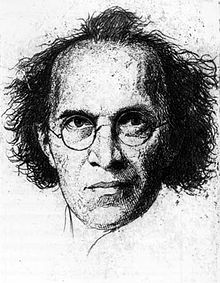 German, mostly Jewish composers whose careers flourished during the first third of the 20th century and then were completely upended by the Nazis. There were nine of them, not counting Mahler himself, and we selected three for this entry: Franz Schreker, Egon Wellesz, and Erich Wolfgang Korngold. All three, while modern in the musical idiom, didn’t accept Schoenberg’s atonality and wrote in a somewhat flowery, Romantic style. We’ll start with two excerpts from Schreker’s opera Der ferne Klang, which premiered in Frankfurt in 1912. This was Schreker’s breakthrough opera, staged in Germany hundreds of times. Schreker’s popularity waned in the mid-20s, as new operas in the zeitoper style, an angular German version of Italian verismo, became fashionable. Still, he was a highly esteemed composer and teacher when the Nazis came to power in 1933. Then, practically overnight, his music was banned, and he was dismissed from the Prussian Academy of Arts. Without means to support himself (his greatest triumphs happened during the period of hyperinflation), he suffered a stroke in December of 1933 and died in March of 1934, two days before his 56th birthday.
German, mostly Jewish composers whose careers flourished during the first third of the 20th century and then were completely upended by the Nazis. There were nine of them, not counting Mahler himself, and we selected three for this entry: Franz Schreker, Egon Wellesz, and Erich Wolfgang Korngold. All three, while modern in the musical idiom, didn’t accept Schoenberg’s atonality and wrote in a somewhat flowery, Romantic style. We’ll start with two excerpts from Schreker’s opera Der ferne Klang, which premiered in Frankfurt in 1912. This was Schreker’s breakthrough opera, staged in Germany hundreds of times. Schreker’s popularity waned in the mid-20s, as new operas in the zeitoper style, an angular German version of Italian verismo, became fashionable. Still, he was a highly esteemed composer and teacher when the Nazis came to power in 1933. Then, practically overnight, his music was banned, and he was dismissed from the Prussian Academy of Arts. Without means to support himself (his greatest triumphs happened during the period of hyperinflation), he suffered a stroke in December of 1933 and died in March of 1934, two days before his 56th birthday. 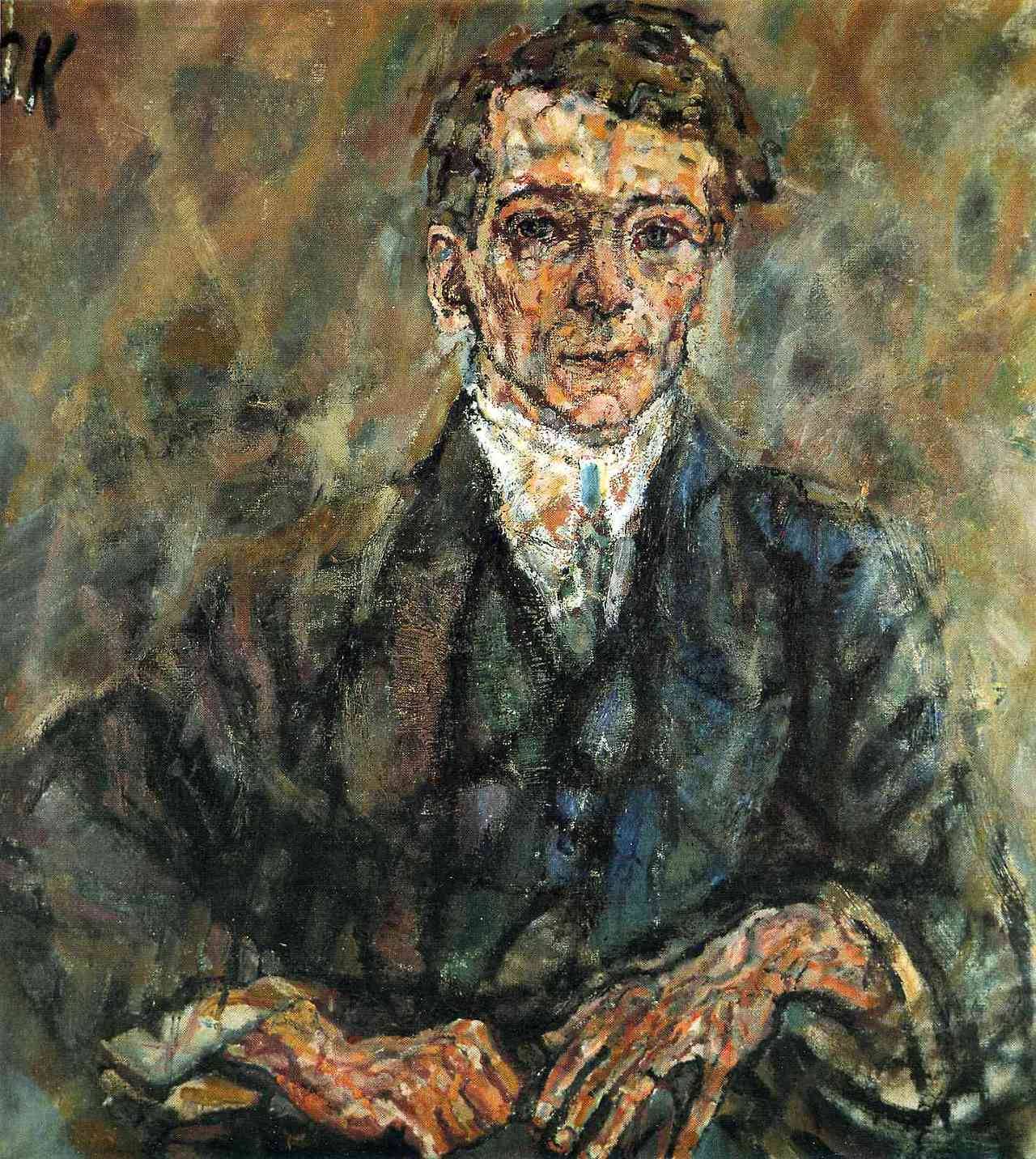 Michael Haas rightly calls him the first victim of Nazism. Here’s Nachtstück, an interlude from Act 3 of Der ferne Klang. It’s performed by the Royal Swedish Orchestra under the direction of Lawrence Renes. And here is the final scene, Grete! Horst Du den Ton? (Do you hear the sound?) with the tenor Thomas Moser and soprano Gabriele Schnaut. The scream at the end reminds one of the final moments of Puccini’s Tosca, written 12 years earlier. Berlin Radio Symphony Orchestra is conducted by Gerd Albrecht.
Michael Haas rightly calls him the first victim of Nazism. Here’s Nachtstück, an interlude from Act 3 of Der ferne Klang. It’s performed by the Royal Swedish Orchestra under the direction of Lawrence Renes. And here is the final scene, Grete! Horst Du den Ton? (Do you hear the sound?) with the tenor Thomas Moser and soprano Gabriele Schnaut. The scream at the end reminds one of the final moments of Puccini’s Tosca, written 12 years earlier. Berlin Radio Symphony Orchestra is conducted by Gerd Albrecht.
Next, we’ll turn to Egon Wellesz, whose life, fortunately, was not as tragic as that of many of his Jewish contemporaries: he stayed in Vienna till Anschluss and then emigrated to England, where his life wasn’t easy (he was interned for a while as an “enemy alien”) but where he eventually built a career as an expert in Byzantine music and teacher. However, he was forgotten as a composer, which is a pity, as you can judge for yourself. Here’s Wellesz’s Idyllen, op.21, five short pieces for piano in the impressionistic style, written after poems by Stefan George. It’s performed by Margarete Babinsky. And here is his String Quartet no. 6, op.64, composed in England in 1947. The first several bars remind us of the famous 4th movement of Shostakovich’s Quartet no. 8 from 1960. It’s performed by Artis-Quartett Wien.
This Week in Classical Music: January 9, 2023. German and Austrian (Jewish) Music from Mahler to 1933. Since about a month ago, when we published an entry dedicated to the Austrian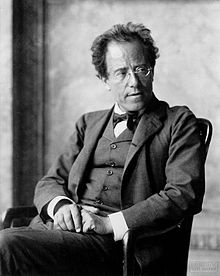 Jewish composer Ernst Toch, we’ve been preoccupied with that tragic but remarkably fecund period of European art of the period. We must give credit to Michael Haas, whose book Forbidden Music and his eponymous blog have guided us in our search. Haas brilliantly explores the history of Austro-Hungarian and German Jewry starting with the Congress of Vienna in 1814 through the midcentury and Wagner’s antisemitism; the Austrian Constitution of 1867 proclaimed by the emperor Franz Joseph I, which emancipated the Jews of much of the Empire and helped to liberate the talents of the country’s Jewry, especially in arts; the underlying antisemitism of the society and first antisemitic political movements, relatively innocuous back then but eventually murderous and later catastrophic;
Jewish composer Ernst Toch, we’ve been preoccupied with that tragic but remarkably fecund period of European art of the period. We must give credit to Michael Haas, whose book Forbidden Music and his eponymous blog have guided us in our search. Haas brilliantly explores the history of Austro-Hungarian and German Jewry starting with the Congress of Vienna in 1814 through the midcentury and Wagner’s antisemitism; the Austrian Constitution of 1867 proclaimed by the emperor Franz Joseph I, which emancipated the Jews of much of the Empire and helped to liberate the talents of the country’s Jewry, especially in arts; the underlying antisemitism of the society and first antisemitic political movements, relatively innocuous back then but eventually murderous and later catastrophic;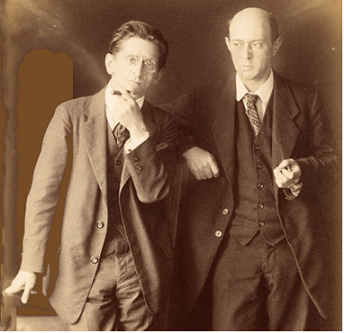 the problems of the German minority of the Empire, and so much more.
the problems of the German minority of the Empire, and so much more.
For the Jews, the way to become accepted in society, formally free but practically still antisemitic, was through the arts, especially music. The flourishing that followed was quite unprecedented. We’re not even talking about the performing artists or conducting, where Jewish musicians came to occupy very prominent positions – we’re focusing on the composers who changed the music scene of the German-speaking world. Gustav Mahler, born in 1860, was the oldest of this group. Alexander von Zemlinsky, who fell in love with Alma Schindler before Mahler convinced her to marry him, was 11 years younger but still one of the most celebrated composers of the early 20th century, right there after Mahler and Richard Strauss (Strauss, born in 1864, wasn’t Jewish). Arnold Schoenberg, who changed the way we listen to music and even what we consider music, was born in 1874 (you may want to check our three entries here, here, and here). Franz Schreker, for a while more famous than all of the above, was the most popular opera composer in Austria and Germany. He was born in 1878.
group. Alexander von Zemlinsky, who fell in love with Alma Schindler before Mahler convinced her to marry him, was 11 years younger but still one of the most celebrated composers of the early 20th century, right there after Mahler and Richard Strauss (Strauss, born in 1864, wasn’t Jewish). Arnold Schoenberg, who changed the way we listen to music and even what we consider music, was born in 1874 (you may want to check our three entries here, here, and here). Franz Schreker, for a while more famous than all of the above, was the most popular opera composer in Austria and Germany. He was born in 1878.
Then there were three composers who are practically forgotten these days. Who remembers Karl Weigl, even though his music was praised by Mahler, Schoenberg, and Strauss? Weigl was born in 1881. Egon Wellesz, born in 1885, was one of the most successful pupils of Arnold Schoenberg: his music was published by Universal Edition, the most prestigious music publishing house in Europe, before Berg’s or Webern’s. He was also a noted scholar of Byzantine music. Ernst Toch, to whom we dedicated a recent entry, was born in 1887; his music was admired by Mahler and widely performed, till the Nazis banned it after assuming power.
Erich Wolfgang Korngold, an amazing child prodigy (many compared him to Mozart), was born in 1897 and wrote a ballet (Der Schneemann) at the age of 11, before the much older Zemlinksy composed the bulk of his work. Korngold became one of the most celebrated (and rich) composers of the time. Hanns Eisler, also Schoenberg’s student, was born in 1898 and became famous for his communist sympathies and for composing the national hymn of the German Democratic Republic. And Berthold Goldschmidt, the youngest of this group, was born in 1903. Franz Schreker’s student and a successful composer, he was considered by many to be the brightest star of his generation.
By 1933, when the Nazis took power, Mahler had been dead for 22 years, but everybody else’s careers and personal lives were brutally upended. Their music was declared “degenerate,” and their livelihoods destroyed. Franz Schreker suffered a stroke in December of 1933 and died three months later. Everybody else was forced to emigrate. Most of them never regained the fame they had in Europe. We’ll talk about the aftermath of the Nazi takeover and listen to some of the music in our next post.Permalink
This Week in Classical Music: January 2, 2023. Yes, 2023! The first week of the year is rich in pianistic talent: January 5th alone is the birthday of three tremendously gifted pianists, Arturo Benedetti Michelangeli (born in 1920) Alfred Brendel (1931), and Maurizio Pollini (1942).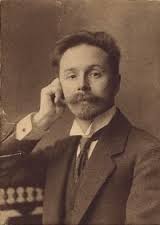 The Russian composer Alexander Scriabin was also born this week, on January 6th of 1872. Scriabin, himself a piano virtuoso, wrote many pieces for the instrument: numerous preludes, etudes, impromptus, mazurkas, poèmes, and ten numbered sonatas, not counting two early piano pieces in that form. We thought that we would find some Scriabin recordings by our pianists to celebrate both their art and that of the composer, but alas, there were none. Michelangeli had a rather limited repertoire, Brendel’s was much broader but even though he did play some 20th-century music, he mostly concentrated on German classics. What surprised us the most was the absence of Scriabin’s recordings in Pollini’s discography. Pollini played so many composers, from Bach to Luigi Nono, that we thought he would’ve recorded some Scriabin along the way, but we were mistaken: not a single record exists. Whether Pollini played Scriabin in concerts we don’t know, so we had to turn to a great interpreter of Scriabin’s music, Sviatoslav Richter. Here’s Sonata no. 5 in F sharp major, Op 53, recorded by Richter in Prague on September 24, 1972.
The Russian composer Alexander Scriabin was also born this week, on January 6th of 1872. Scriabin, himself a piano virtuoso, wrote many pieces for the instrument: numerous preludes, etudes, impromptus, mazurkas, poèmes, and ten numbered sonatas, not counting two early piano pieces in that form. We thought that we would find some Scriabin recordings by our pianists to celebrate both their art and that of the composer, but alas, there were none. Michelangeli had a rather limited repertoire, Brendel’s was much broader but even though he did play some 20th-century music, he mostly concentrated on German classics. What surprised us the most was the absence of Scriabin’s recordings in Pollini’s discography. Pollini played so many composers, from Bach to Luigi Nono, that we thought he would’ve recorded some Scriabin along the way, but we were mistaken: not a single record exists. Whether Pollini played Scriabin in concerts we don’t know, so we had to turn to a great interpreter of Scriabin’s music, Sviatoslav Richter. Here’s Sonata no. 5 in F sharp major, Op 53, recorded by Richter in Prague on September 24, 1972.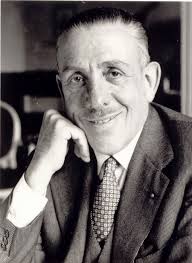
The wonderful French composer Francis Poulenc was also born this week, on January 7th of 1899. Soirées de Nazelles (Nazelles evenings) is a set of variations that Poulenc composed between 1930 and 1936 (Nazelles is a small town on the Loire not far from Tours). Here’s the description at the top of the score, written by Poulenc himself: “The variations that form the center of this work were improvised at Nazelles during long country evenings wherein the composer played "portraits" for friends gathered around his piano. We hope that these variations, each one somewhere between a first draft and a finished work, will have the power to evoke this game in the spirit of a Touraine region living room – with a window open to the night.” Here’s Soirées de Nazelles performed by the French pianist Pascal Rogé.
PermalinkThis Week in Classical Music: December 26, 2022. End of Year. This year will be remembered for the brutal, unprovoked war Russia unleashed against Ukraine in February. Peace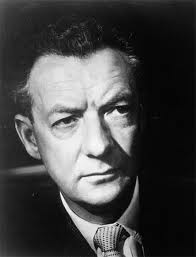 in Europe has failed, yet again, but this time to an extent not seen since WWII. And yet again we see that culture doesn’t help us to fight evil: the country of Tolstoy and Tchaikovsky is killing people very much like the country of Beethoven and Goethe was doing it eighty-some years ago. Neither words nor music, only deadly weapons can stop the aggressor. If we were to play some music to acknowledge the barbarity of the events, that would be Britten’s War Requiem. Written in 1961-62, the music was commissioned to mark the consecration of the Coventry Cathedral, recently rebuilt after being destroyed by German bombs during WWII. For the text of the Requiem, Britten used parts of the Latin mass and nine poems of Wilfred Owen, the English poet who died during the Great War just one week before the armistice (despite all the modern rocketry, what’s happening in Ukraine today reminds one of the hellish trench battles of WWI).
in Europe has failed, yet again, but this time to an extent not seen since WWII. And yet again we see that culture doesn’t help us to fight evil: the country of Tolstoy and Tchaikovsky is killing people very much like the country of Beethoven and Goethe was doing it eighty-some years ago. Neither words nor music, only deadly weapons can stop the aggressor. If we were to play some music to acknowledge the barbarity of the events, that would be Britten’s War Requiem. Written in 1961-62, the music was commissioned to mark the consecration of the Coventry Cathedral, recently rebuilt after being destroyed by German bombs during WWII. For the text of the Requiem, Britten used parts of the Latin mass and nine poems of Wilfred Owen, the English poet who died during the Great War just one week before the armistice (despite all the modern rocketry, what’s happening in Ukraine today reminds one of the hellish trench battles of WWI).
At the premiere of the Requiem Britten wanted to show the newfound European unity, inviting his friends from different countries to perform: the soprano Galina Vishnevskaya from the Soviet Union, Peter Pears, an Englishman, and Dietrich Fischer-Dieskau, a German. But there was no “unity” between the East and the West in 1962: the Soviet Government didn’t allow Vishnevskaya to travel to the UK and Heather Harper had to substitute on very short notice. Several months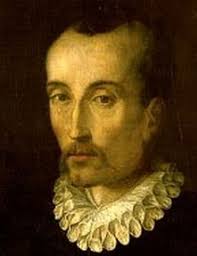 later the Soviets relented and let Vishnevskaya go to London to record the piece. It’s from this recording that we can hear the first movement, Requiem aeternam. Benjamin Britten conducts the London Symphony Orchestra.
later the Soviets relented and let Vishnevskaya go to London to record the piece. It’s from this recording that we can hear the first movement, Requiem aeternam. Benjamin Britten conducts the London Symphony Orchestra.
It became a tradition of sorts for us to celebrate the approaching New Year by commemorating the numerous composers of the Renaissance whose birth dates were lost in history. We regularly write about the “greats,” such as Guillaume Dufay, Josquin des Prez, Palestrina, Orlando di Lasso, and Tomás Luis de Victoria, but there are scores of talented composers born in the 16th and even 17th centuries that we often miss for the only reason that their birthdays are not fixed in the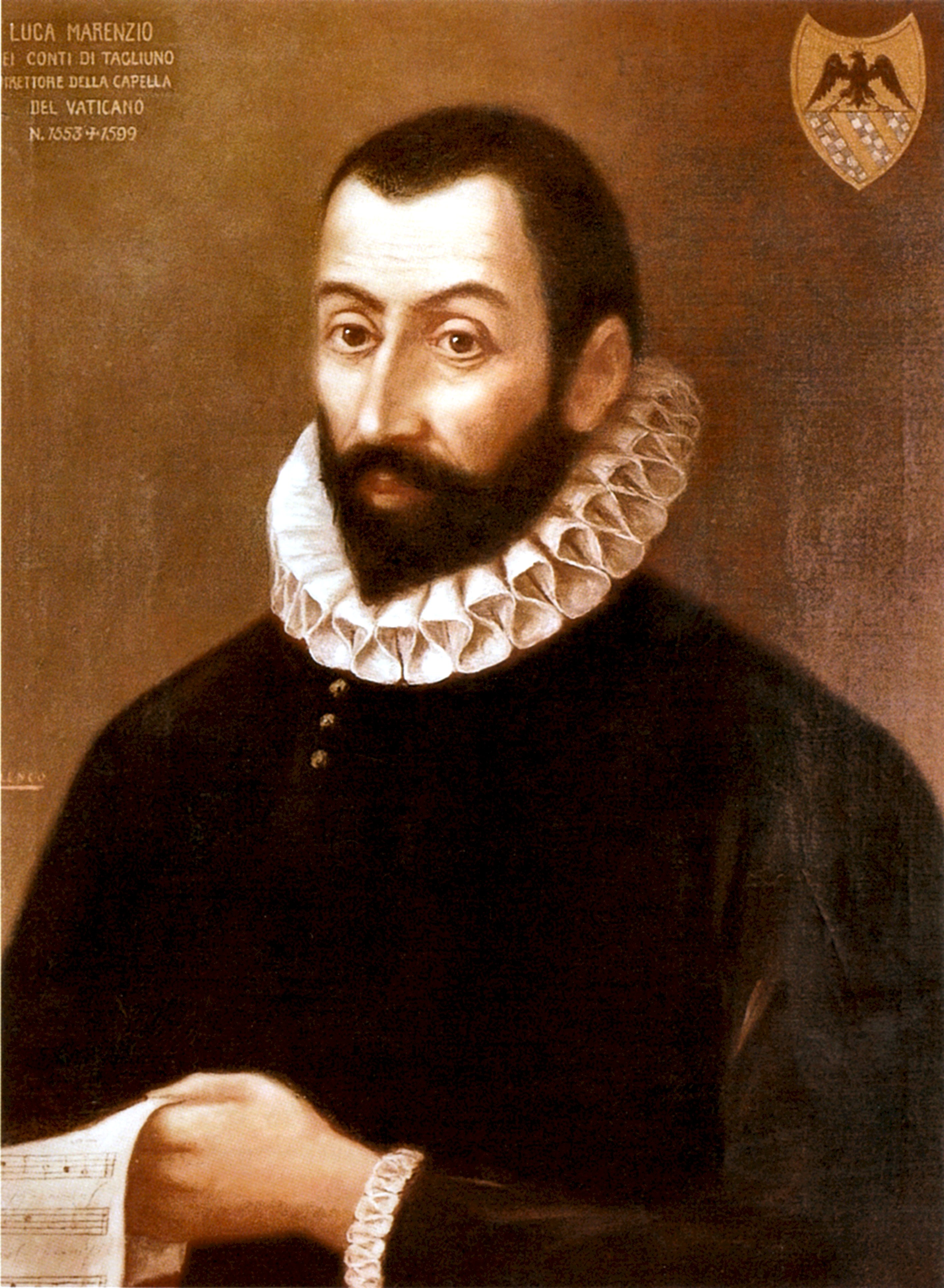 musical calendar. So here is a madrigal Queste Non Son Più Lagrime Che Fuore (These are no longer real tears which rise) by Giaches de Wert. It’s based on a canto from Orlando furioso, a poem by the great Italian poet Ludovico Ariosto and performed by the ensemble La Compagnia del Madrigale. Giaches de Wert was born in 1535 and spent many years at the courts of the Gonzaga and Este families in Mantua and Ferrara, then the musical centers of Italy. Luca Marenzio was 18 years younger than de Wert; he was also famous for his madrigals and also for many years served different branches of Estes and Gonzagas, though mostly in Rome and Florence. Here’s Amor, i' ò molti et molt'anni pianto (Love I've cried many and many years), Marenzio’s madrigal for five voices. It’s set to a text by Petrarch and is performed by the ensemble La Venexiana.
musical calendar. So here is a madrigal Queste Non Son Più Lagrime Che Fuore (These are no longer real tears which rise) by Giaches de Wert. It’s based on a canto from Orlando furioso, a poem by the great Italian poet Ludovico Ariosto and performed by the ensemble La Compagnia del Madrigale. Giaches de Wert was born in 1535 and spent many years at the courts of the Gonzaga and Este families in Mantua and Ferrara, then the musical centers of Italy. Luca Marenzio was 18 years younger than de Wert; he was also famous for his madrigals and also for many years served different branches of Estes and Gonzagas, though mostly in Rome and Florence. Here’s Amor, i' ò molti et molt'anni pianto (Love I've cried many and many years), Marenzio’s madrigal for five voices. It’s set to a text by Petrarch and is performed by the ensemble La Venexiana.
Happy New Year!
PermalinkThis Week in Classical Music: December 19, 2022. Puccini and Christmas. Giacomo Puccini was born this week, on December 12th of 1858. Not long ago we came across a story involving him, it’s interesting but rather circuitous so bear with us for a moment. It starts with Michael Haas, the author of a very interesting book, The Forbidden Music, the story of Jewish composers and musicians banned by the Nazis – we highly recommend it. Mr. Haas runs a blog which we also find interesting. One of the recent entries was devoted to the 1903 article by Eduard Hanslick who reviewed the performance of Puccini’s La Bohème at the Vienna Hofoper, the court opera, conducted by Gustav Mahler. It’s fascinating, but we need to set the scene and try to put things into perspective.
involving him, it’s interesting but rather circuitous so bear with us for a moment. It starts with Michael Haas, the author of a very interesting book, The Forbidden Music, the story of Jewish composers and musicians banned by the Nazis – we highly recommend it. Mr. Haas runs a blog which we also find interesting. One of the recent entries was devoted to the 1903 article by Eduard Hanslick who reviewed the performance of Puccini’s La Bohème at the Vienna Hofoper, the court opera, conducted by Gustav Mahler. It’s fascinating, but we need to set the scene and try to put things into perspective.
Eduard Hanslick was a famous music critic (we had an entry about him several years ago). He worked for a Viennese newspaper called Die Neue Freie Presse (The New Free Press). The newspaper, probably the most influential in the Austrian Empire, was unusual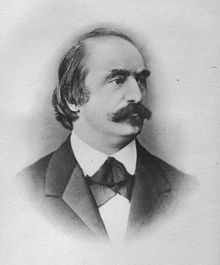 in that it employed a large number of prominent Jewish writers, including Theodor Herzl, the founder of Zionism. Julius Korngold, the father of the composer Erich Wolfgang Korngold, also Jewish, succeeded Hanslick as the chief music critic. Remember that Austria at that time was highly antisemitic; Karl Lueger, the Mayor of Vienna at the time, was one of the leading antisemites. Hanslick, who worked at the newspaper for 40 years, was enormously influential. He was a preeminent supporter of the music of Brahms and a critic of Wagner, Bruckner, and Hugo Wolf (he also disliked Tchaikovsky’s Violin concerto, saying that it “stinks to the ear”). This was the person who wrote a scathing review of Puccini’s La Bohème, a production mounted under the supervision of the then Director of Hofoper, Gustav Mahler, who also conducted the premiere.
in that it employed a large number of prominent Jewish writers, including Theodor Herzl, the founder of Zionism. Julius Korngold, the father of the composer Erich Wolfgang Korngold, also Jewish, succeeded Hanslick as the chief music critic. Remember that Austria at that time was highly antisemitic; Karl Lueger, the Mayor of Vienna at the time, was one of the leading antisemites. Hanslick, who worked at the newspaper for 40 years, was enormously influential. He was a preeminent supporter of the music of Brahms and a critic of Wagner, Bruckner, and Hugo Wolf (he also disliked Tchaikovsky’s Violin concerto, saying that it “stinks to the ear”). This was the person who wrote a scathing review of Puccini’s La Bohème, a production mounted under the supervision of the then Director of Hofoper, Gustav Mahler, who also conducted the premiere.
We know La Bohème as one of the most popular operas ever, and one of Puccini’s very best; it’s being staged constantly on every continent. In 1903, though, it was quite new: the premier was held in 1896 in Turin with the young Arturo Toscanini conducting. Practically at the same time Ruggero Leoncavallo, the author of Pagliacci, also wrote a La Bohème, now totally forgotten. It was based on the same book by Henri Murger and had a successful premiere; back then it wasn’t that clear which one was better (Hanslick, who hated both operas, didn’t hesitate to let us know which one he thought was worse). Then there is another aspect of the performance: in Austria, as in Germany, the UK, or Russia, operas were staged in the native language. Even though Hanslick liked the singing, La Bohème in German would probably grate our ears today. Finally, about the form of the article. It’s presented not as a brief review we would expect today but as a tremendously detailed, long account of all aspects of the performance. Some articles back then, called feuilleton, could run three-four pages – and people read them. This one is also long, so you may not want to read the whole thing, but skim it, it’s fun and Mr. Haas has wonderful photographs and musical snippets.
being staged constantly on every continent. In 1903, though, it was quite new: the premier was held in 1896 in Turin with the young Arturo Toscanini conducting. Practically at the same time Ruggero Leoncavallo, the author of Pagliacci, also wrote a La Bohème, now totally forgotten. It was based on the same book by Henri Murger and had a successful premiere; back then it wasn’t that clear which one was better (Hanslick, who hated both operas, didn’t hesitate to let us know which one he thought was worse). Then there is another aspect of the performance: in Austria, as in Germany, the UK, or Russia, operas were staged in the native language. Even though Hanslick liked the singing, La Bohème in German would probably grate our ears today. Finally, about the form of the article. It’s presented not as a brief review we would expect today but as a tremendously detailed, long account of all aspects of the performance. Some articles back then, called feuilleton, could run three-four pages – and people read them. This one is also long, so you may not want to read the whole thing, but skim it, it’s fun and Mr. Haas has wonderful photographs and musical snippets.
So here is the article. And here is O soave fanciulla from Act I, sung by Renata Tebaldi (Mimi) and Jussi Bjoerling (Rodolfo) in 1956. Hard to imagine that Hanslick didn’t like it.
And of course, Merry Christmas to all!
Permalink